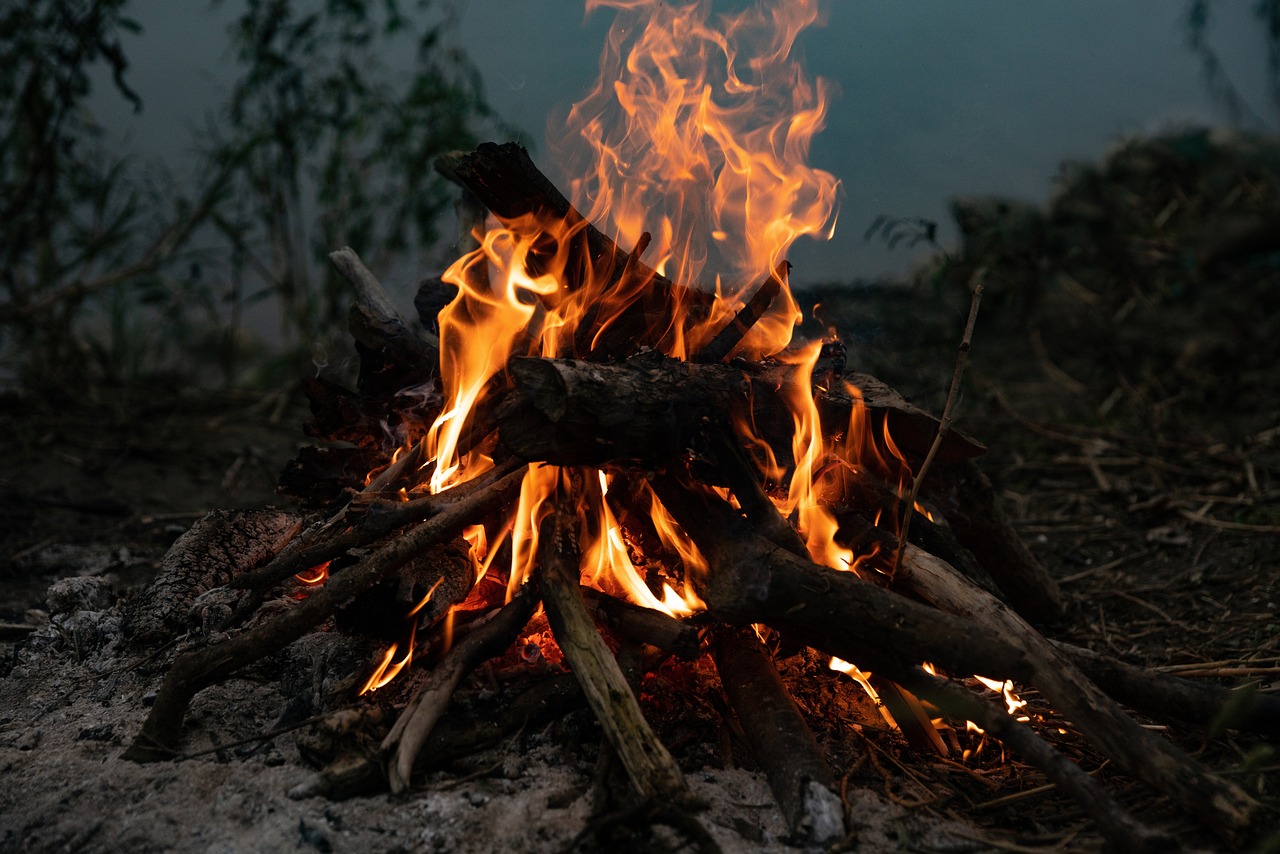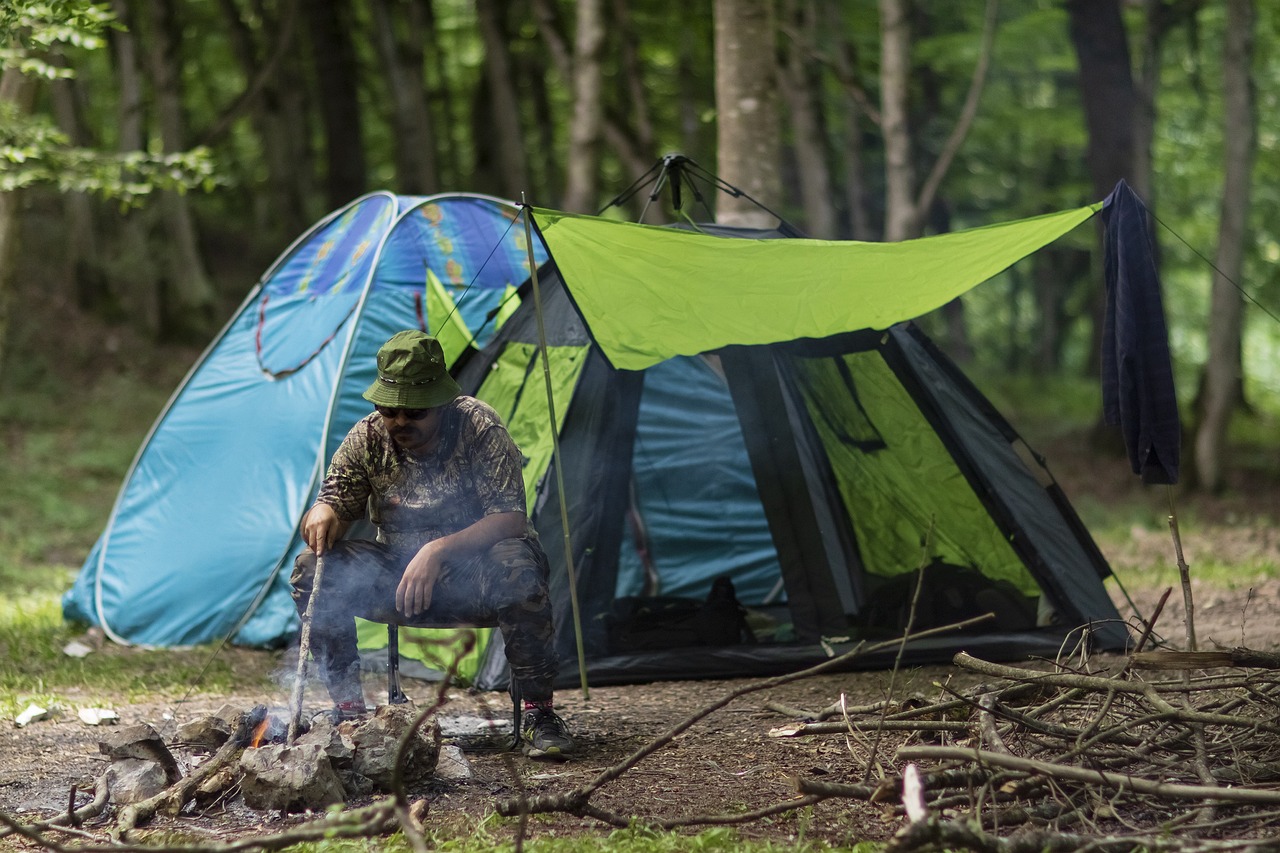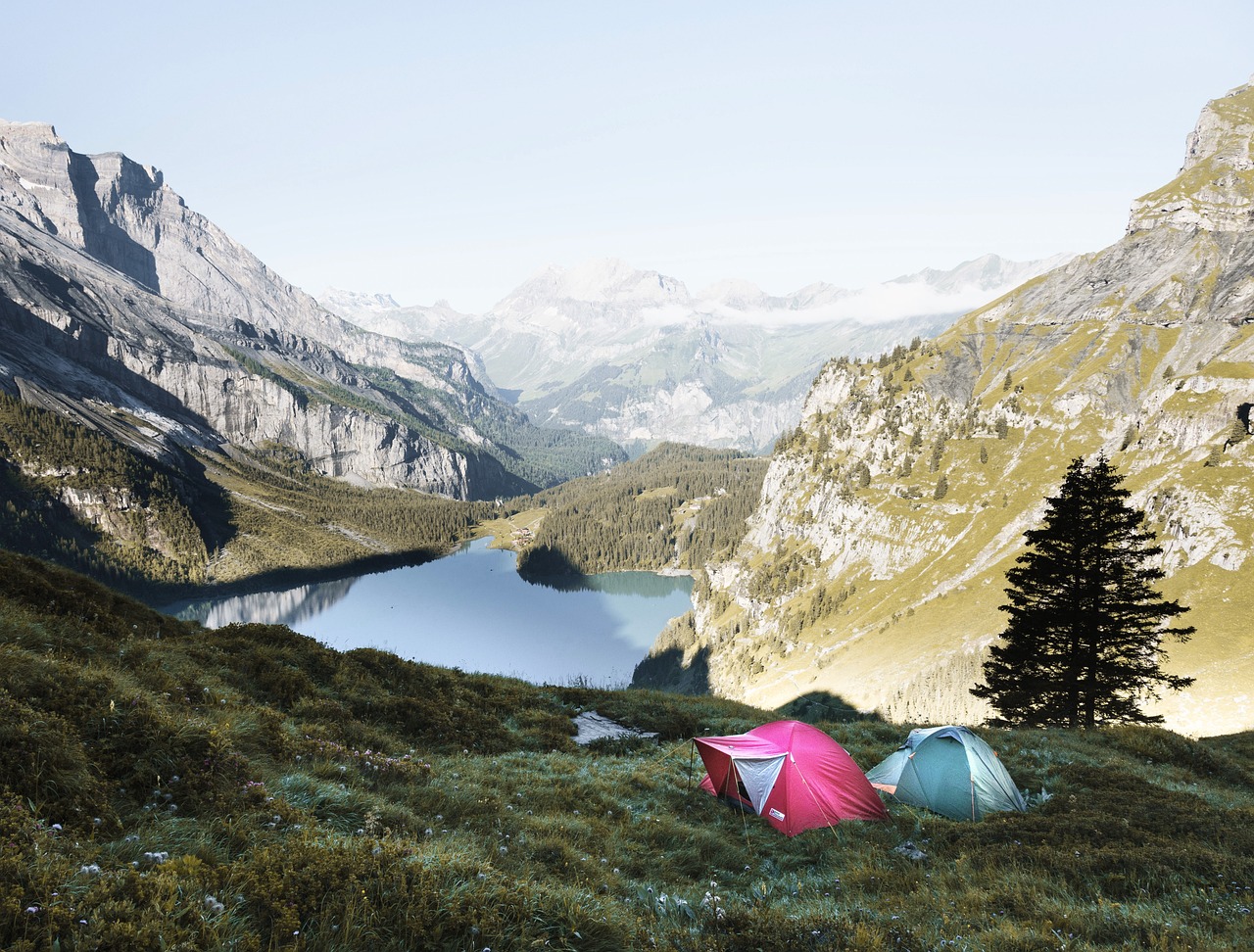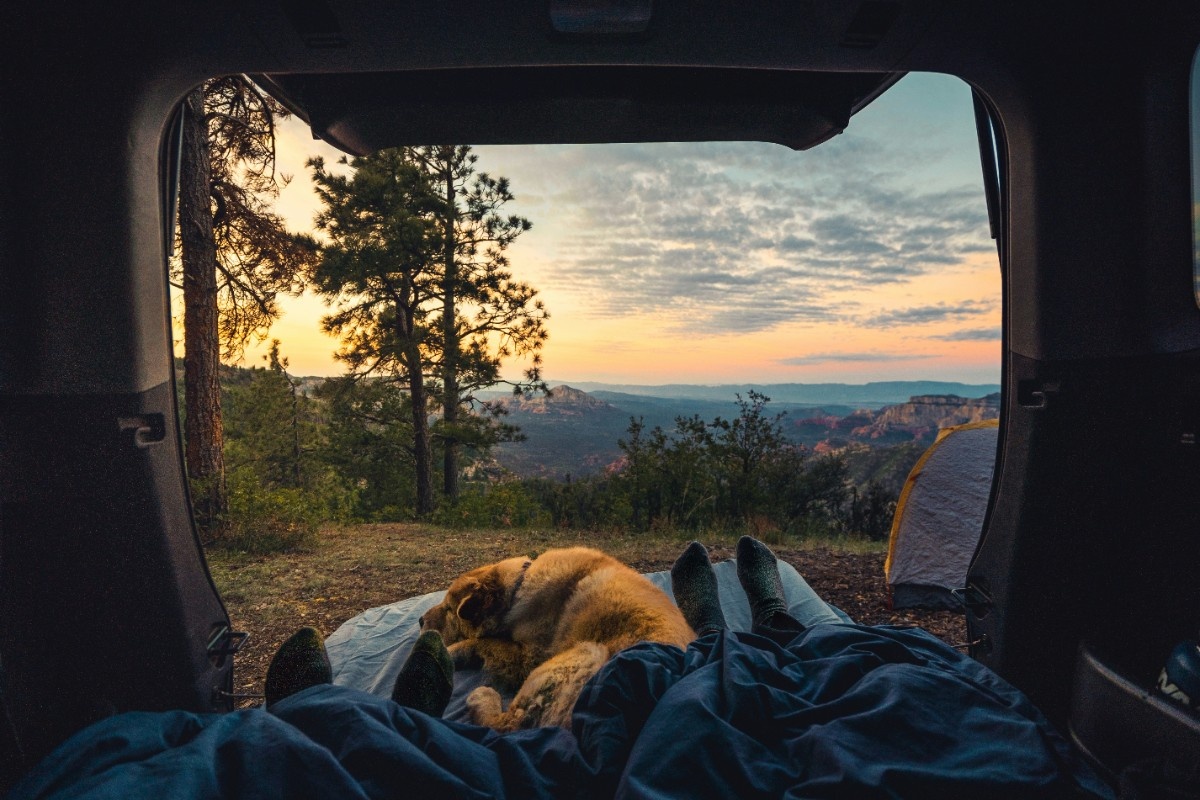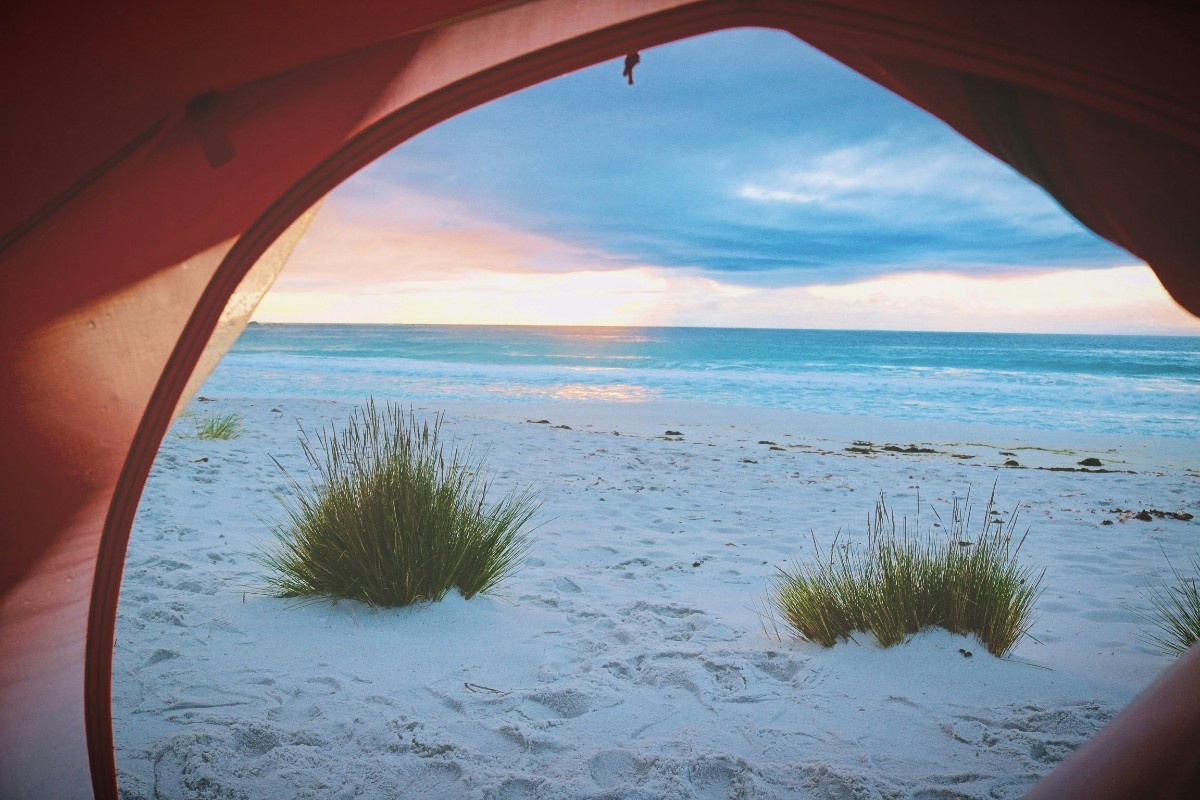Leaving Stress Behind and Finding Relaxation in Nature
The Importance of Escaping Daily Stressors
In today's fast-paced, technology-driven world, it's easy to get caught up in the daily grind and forget to take time for ourselves. The constant pressure of work deadlines, social obligations, and personal responsibilities can lead to chronic stress, which can have detrimental effects on both our physical and mental health. Camping offers a unique opportunity to escape these daily stressors and immerse oneself in the tranquillity of nature. By leaving behind the distractions of work, social media, and the constant bombardment of information, we can allow our minds and bodies to truly relax and recharge.
Studies have shown that spending time in nature can significantly reduce levels of cortisol, the hormone associated with stress, and increase the production of endorphins, the body's natural mood-boosters. This can lead to a greater sense of calm, contentment, and overall well-being. Moreover, the act of disconnecting from technology and the constant stimulation of modern life can help to improve our focus, concentration, and creativity. By giving our minds a break from the endless stream of information and distractions, we can allow our thoughts to wander and explore new ideas and perspectives.
Immersing Oneself in the Tranquillity of Nature
When we step into the great outdoors, we are surrounded by the soothing sights, sounds, and scents of the natural world. The gentle rustling of leaves in the breeze, the chirping of birds, and the babbling of a nearby stream create a calming symphony that helps to melt away tension and anxiety. The fresh, clean air fills our lungs, invigorating our senses and promoting a sense of well-being. The lush greenery and vibrant colours of the surrounding landscape provide a visual feast for the eyes, promoting feelings of awe and wonder.
One of the most significant benefits of camping is the opportunity to break free from the rigid schedules and demands of daily life. Without the pressure of meetings, deadlines, and endless to-do lists, we can simply be present in the moment and enjoy the simple pleasures of nature. Whether it's taking a leisurely hike through the woods, sitting by a campfire with loved ones, or simply gazing up at the stars, camping allows us to slow down and appreciate the beauty around us. This escape from the daily grind can have profound effects on our mental and physical health, promoting feelings of relaxation, contentment, and inner peace.
The Physical Benefits of Relaxing in Nature
In addition to the mental health benefits, the physical act of setting up camp and engaging in outdoor activities can provide a much-needed break from the sedentary lifestyle that many of us lead. The simple tasks of pitching a tent, gathering firewood, and cooking meals over a campfire can help to get our bodies moving and our hearts pumping, promoting better physical health and fitness. Moreover, the exposure to natural light and fresh air can help to regulate our circadian rhythms, promoting better sleep and overall physical well-being.
Camping also offers numerous opportunities for physical activity and exercise, such as hiking, swimming, and kayaking. These activities not only provide a fun and engaging way to explore the great outdoors but also offer numerous health benefits, such as improved cardiovascular health, increased muscle strength and flexibility, and better balance and coordination. By engaging in these activities, we can not only improve our physical health but also boost our mood and overall sense of well-being.
Breathing Fresh Air and Enjoying the Scents of Nature
The Benefits of Breathing Fresh, Clean Air
One of the most immediate and noticeable benefits of camping is the opportunity to breathe in fresh, clean air. In our daily lives, we are often exposed to a variety of indoor pollutants, such as dust, mould, and chemical fumes from cleaning products and building materials. These pollutants can have negative effects on our respiratory health, leading to symptoms such as allergies, asthma, and other breathing difficulties. When we step outside and into the great outdoors, however, we are surrounded by an abundance of fresh, pure air, free from the contaminants and toxins that are so prevalent in indoor environments.
The trees and plants that surround us in nature act as natural air purifiers, absorbing carbon dioxide and releasing oxygen into the atmosphere. This process not only helps to improve the quality of the air we breathe but also promotes a healthier and more sustainable environment. Moreover, the increased exposure to oxygen-rich air can help to improve our overall physical health, boosting our energy levels, promoting better brain function, and supporting a healthy immune system.
The Psychological Benefits of Natural Scents
In addition to the physical benefits of breathing fresh air, the scents of nature can also have a profound impact on our mental and emotional well-being. The smell of pine needles, wildflowers, and campfire smoke can evoke feelings of nostalgia, comfort, and relaxation. These scents can also help to stimulate the production of endorphins, the body's natural mood-boosters, leading to a greater sense of happiness and contentment.
Research has also shown that exposure to natural scents can have a positive impact on our cognitive function and memory. The scent of pine, for example, has been shown to improve memory and concentration, while the scent of lavender can help to reduce anxiety and promote relaxation. By immersing ourselves in the natural world and breathing in the scents of nature, we can not only improve our physical health but also promote greater mental clarity, focus, and emotional well-being.
Promoting Mindfulness and Presence
Another benefit of breathing in fresh air and enjoying the scents of nature is the opportunity to practice mindfulness and presence. In our daily lives, we are often so caught up in our thoughts and worries that we forget to take a moment to simply be present in the moment. When we step outside and take a deep breath of fresh air, however, we are reminded to slow down and focus on the present moment.
By paying attention to the sensations of the air moving in and out of our lungs, the subtle fragrances of the natural world around us, and the sights and sounds of nature, we can cultivate a greater sense of mindfulness and presence. This practice can help to reduce stress and anxiety, promote feelings of calm and inner peace, and improve our overall sense of well-being.
Moreover, the act of practicing mindfulness in nature can help to deepen our connection to the natural world and promote a greater sense of environmental stewardship. By taking the time to appreciate the beauty and complexity of the ecosystems around us, we can develop a greater sense of respect and responsibility for the planet and all its inhabitants.
Resetting Your Sleep Cycle and Waking with Natural Sunlight
The Importance of a Healthy Sleep-Wake Cycle
One of the most significant challenges of modern life is the constant disruption of our natural sleep-wake cycles. With the prevalence of artificial lighting and electronic devices, many of us are exposed to bright, stimulating light well into the evening hours, which can interfere with our body's production of melatonin, the hormone that regulates sleep. This disruption can lead to a host of negative health effects, including insomnia, fatigue, mood disorders, and even an increased risk of chronic diseases such as obesity and diabetes.
Camping, however, offers a unique opportunity to reset our circadian rhythms and get back in touch with our body's natural sleep-wake cycle. Without the distractions of electronic devices and artificial lighting, we are more likely to go to bed when the sun sets and wake up when it rises, allowing our bodies to align with the natural rhythms of the day. This realignment can have profound effects on our physical and mental health, promoting better sleep quality, increased energy levels, and overall feelings of well-being.
The Benefits of Waking with Natural Sunlight
One of the most significant benefits of camping is the opportunity to wake up with natural sunlight. Exposure to sunlight in the morning helps to suppress the production of melatonin and increase the production of cortisol, the hormone that helps us to feel alert and energised. This natural boost of energy can help to improve our mood, increase our productivity, and promote feelings of vitality and well-being throughout the day.
Moreover, exposure to natural light in the morning can help to regulate our circadian rhythms, promoting better sleep quality at night. When we wake up with the sun and spend time outdoors during the day, our bodies are better able to produce melatonin at night, which can help us to fall asleep more easily and sleep more deeply. This natural regulation of our sleep-wake cycle can have long-term benefits for our overall health and well-being, reducing the risk of chronic diseases and promoting better mental health.
The Role of Physical Activity in Promoting Better Sleep
In addition to the benefits of natural light exposure, the physical activity associated with camping can also play a significant role in promoting better sleep. When we engage in physical activity during the day, such as hiking, swimming, or gathering firewood, our bodies release endorphins and other feel-good chemicals that can help to reduce stress and promote relaxation. This natural boost of mood-enhancing chemicals can help to improve our overall sense of well-being and promote better sleep at night.
Moreover, physical activity during the day can help to tire out our bodies, making it easier to fall asleep and stay asleep throughout the night. When we engage in regular physical activity, our bodies are better able to regulate our sleep-wake cycle, promoting deeper, more restful sleep. This improved sleep quality can have long-term benefits for our physical and mental health, reducing the risk of chronic diseases and promoting better overall well-being.
Getting Active in the Great Outdoors
The Benefits of Physical Activity in Nature
One of the most significant benefits of camping is the opportunity to engage in physical activity in the great outdoors. Whether we are setting up camp, hiking through the woods, or swimming in a nearby lake or river, camping offers countless opportunities to get our bodies moving and our hearts pumping. This physical activity not only provides a fun and engaging way to explore the natural world around us but also offers numerous health benefits that can improve our overall well-being.
Engaging in physical activity in nature has been shown to have a positive impact on both our physical and mental health. Studies have found that regular exercise in natural environments can help to reduce the risk of chronic diseases such as obesity, diabetes, and heart disease, as well as improve our overall cardiovascular health and fitness levels. Moreover, physical activity in nature has been linked to improved mood, reduced stress and anxiety levels, and increased feelings of happiness and well-being.
The Benefits of Hiking and Exploring Nature
One of the most popular physical activities associated with camping is hiking. Whether we are taking a leisurely stroll through the woods or embarking on a more strenuous trek up a mountain, hiking offers a unique opportunity to explore the natural world around us while getting our bodies moving. Hiking not only provides a great cardiovascular workout but also helps to strengthen our muscles, improve our balance and coordination, and boost our overall fitness levels.
Moreover, hiking in nature offers numerous mental health benefits, including reduced stress and anxiety levels, improved mood, and increased feelings of happiness and well-being. The combination of physical activity and exposure to natural environments has been shown to have a synergistic effect on our mental health, promoting feelings of calm, clarity, and inner peace. By taking the time to disconnect from the distractions of modern life and immerse ourselves in the beauty of nature, we can cultivate a greater sense of mindfulness, presence, and overall well-being.
The Joys of Swimming and Water Activities
Another popular physical activity associated with camping is swimming and other water activities such as kayaking, paddleboarding, and fishing. Many campsites are located near bodies of water, such as lakes, rivers, or even the ocean, providing ample opportunities to get in the water and have some fun. Swimming and water activities not only provide a great way to cool off on hot summer days but also offer numerous health benefits that can improve our overall physical and mental well-being.
Swimming, in particular, is an excellent low-impact exercise that provides a full-body workout, strengthening our muscles, improving our cardiovascular health, and boosting our overall fitness levels. Moreover, the buoyancy of water can help to reduce the impact on our joints and muscles, making it an ideal exercise for people of all ages and fitness levels. In addition to the physical benefits, swimming and water activities have been linked to improved mood, reduced stress levels, and increased feelings of happiness and well-being.
Soaking Up Vitamin D from Natural Sunlight
The Importance of Vitamin D for Overall Health
One of the most significant benefits of camping is the opportunity to soak up vitamin D from natural sunlight. Vitamin D is an essential nutrient that plays a crucial role in maintaining our overall health and well-being. It helps to regulate calcium and phosphate levels in our bodies, which are necessary for strong bones and teeth. Moreover, vitamin D has been linked to a wide range of other health benefits, including improved immune function, reduced inflammation, and a lower risk of chronic diseases such as cancer, diabetes, and heart disease.
Despite the importance of vitamin D for our health, many people are deficient in this essential nutrient. This is largely due to the fact that our bodies can only produce vitamin D when our skin is exposed to sunlight, and many people spend the majority of their time indoors, especially during the winter months. Camping offers a unique opportunity to spend extended periods of time outdoors, soaking up the sun's rays and boosting our body's production of vitamin D.
The Benefits of Sunlight Exposure for Bone Health
One of the most well-known benefits of vitamin D is its role in maintaining strong bones and preventing osteoporosis. Vitamin D helps our bodies absorb calcium from the foods we eat, which is essential for building and maintaining strong bones. When we are deficient in vitamin D, our bodies are unable to absorb calcium effectively, which can lead to weak and brittle bones that are more susceptible to fractures and breaks.
Camping offers an excellent opportunity to boost our vitamin D levels and promote better bone health. By spending time outdoors and exposing our skin to natural sunlight, we can stimulate our body's production of vitamin D and ensure that we are getting enough of this essential nutrient to support strong and healthy bones. Moreover, the physical activity associated with camping, such as hiking and setting up camp, can also help to strengthen our bones and reduce the risk of osteoporosis.
The Link Between Vitamin D and Mental Health
In addition to its physical health benefits, vitamin D has also been linked to improved mental health and well-being. Studies have shown that people with higher levels of vitamin D tend to have lower rates of depression, anxiety, and other mood disorders. This may be due to the fact that vitamin D plays a role in regulating the production of serotonin, a neurotransmitter that is involved in mood regulation.
Camping offers a unique opportunity to boost our vitamin D levels and promote better mental health. By spending time outdoors and exposing our skin to natural sunlight, we can stimulate our body's production of vitamin D and support healthy brain function. Moreover, the physical activity and social connections associated with camping can also help to reduce stress, improve mood, and promote overall feelings of happiness and well-being.
Boosting Mental Health and Disconnecting from Technology
The Mental Health Benefits of Spending Time in Nature
In today's fast-paced, technology-driven world, it's easy to become overwhelmed and disconnected from the natural world around us. We spend countless hours indoors, staring at screens and plugged into electronic devices, which can take a toll on our mental health and well-being. Camping offers a unique opportunity to disconnect from technology and immerse ourselves in the beauty and tranquillity of nature.
Studies have shown that spending time in nature can have a profound impact on our mental health, reducing stress, anxiety, and depression, and promoting overall feelings of happiness and well-being. This may be due to the fact that being in nature helps to lower levels of cortisol, the stress hormone, and increases the production of endorphins, the body's natural mood-boosters. Moreover, the physical activity and social connections associated with camping can also help to reduce stress and promote positive mental health.
The Importance of Disconnecting from Technology
In addition to the mental health benefits of spending time in nature, camping also offers an opportunity to disconnect from technology and the constant barrage of digital stimuli that we are exposed to on a daily basis. Studies have shown that excessive screen time and technology use can have negative impacts on our mental health, including increased stress, anxiety, and depression.
Camping provides a chance to unplug from our devices and focus on the present moment, without the constant distractions of emails, social media, and other digital notifications. This digital detox can help to reduce stress, improve sleep, and promote overall feelings of relaxation and well-being. Moreover, disconnecting from technology can also help to foster deeper connections with the people around us, as we are able to be more present and engaged in our social interactions.
The Power of Mindfulness and Being Present in Nature
Another significant benefit of camping for mental health is the opportunity to practice mindfulness and be present in the moment. Mindfulness involves paying attention to our thoughts, feelings, and sensations in the present moment, without judgment or distraction. When we are in nature, surrounded by the beauty and tranquillity of the outdoors, it can be easier to cultivate a sense of mindfulness and presence.
By taking the time to disconnect from technology and immerse ourselves in the natural world around us, we can quiet our minds and focus on the present moment. This can help to reduce stress and anxiety, promote feelings of calm and relaxation, and improve our overall sense of well-being. Moreover, practicing mindfulness in nature can also help to deepen our connection to the environment and promote a greater sense of appreciation and gratitude for the world around us.
Strengthening Relationships and Creating Shared Experiences
The Importance of Quality Time and Undivided Attention
In today's society, it can be challenging to find quality time to spend with loved ones. We are often pulled in multiple directions by work, school, and other commitments, leaving little time for the people who matter most. Camping offers a unique opportunity to step away from the distractions of daily life and focus on strengthening relationships with family and friends.
When we camp with others, we are able to provide undivided attention to our companions, without the constant interruptions of technology and other daily demands. This quality time spent together can help to foster deeper connections, improve communication, and create lasting memories. Whether it's sitting around the campfire telling stories, going on a hike together, or simply enjoying a meal under the stars, camping provides a chance to strengthen bonds and create shared experiences that can last a lifetime.
Building Trust, Communication, and Teamwork through Shared Challenges
Camping also offers an opportunity to build trust, communication, and teamwork skills through shared challenges and experiences. When we camp with others, we must work together to set up camp, prepare meals, and navigate the challenges of the great outdoors. These shared experiences can help to foster a sense of camaraderie and collaboration, as we learn to rely on and support one another.
Moreover, camping can also provide opportunities for open and honest communication, as we navigate the challenges and joys of the outdoors together. Whether it's discussing plans for the day, working through a disagreement, or simply sharing our thoughts and feelings around the campfire, camping can help to improve communication skills and foster deeper understanding and empathy among companions.
Creating Lasting Memories and Strengthening Family Bonds
For families with children, camping can be an especially valuable experience for strengthening bonds and creating lasting memories. When families camp together, they are able to step away from the distractions of daily life and focus on spending quality time together in nature. This can provide opportunities for parents to teach their children valuable life skills, such as how to pitch a tent, start a fire, or navigate using a map and compass.
Moreover, camping can also help to foster a sense of adventure and exploration in children, as they discover the wonders of the natural world around them. Whether it's spotting a deer on a hike, catching a fish in a nearby stream, or simply gazing up at the stars on a clear night, camping can provide endless opportunities for children to learn, grow, and create lasting memories with their families.
Learning New Skills and Overcoming Challenges
Developing Essential Camping Skills
Camping offers a unique opportunity to learn and develop a wide range of essential skills, from pitching a tent and building a fire to navigating with a map and compass. These skills not only make camping more enjoyable and comfortable but can also be valuable in other areas of life, such as problem-solving, critical thinking, and adaptability.
One of the most essential skills that camping can teach is knot tying. From setting up a tent to securing gear, knowing how to tie a variety of knots is crucial for any camping trip. Learning how to tie knots like the bowline, clove hitch, and taut-line hitch can not only make camping easier and more efficient but can also be useful in other outdoor activities, such as boating or rock climbing.
Another essential camping skill is fire building. Whether you're using a campfire for warmth, cooking, or simply ambiance, knowing how to build and maintain a fire is a crucial part of any camping experience. Learning how to select the right wood, arrange kindling and tinder, and safely extinguish a fire can be both challenging and rewarding.
Overcoming Challenges and Building Resilience
In addition to learning new skills, camping can also provide opportunities to overcome challenges and build resilience. When we step outside of our comfort zones and face new obstacles, we develop a greater sense of confidence and self-reliance. Whether it's navigating a challenging hiking trail, weathering a sudden storm, or simply adapting to the discomforts of sleeping outdoors, camping can help to build mental and emotional strength.
Moreover, camping can also teach valuable lessons about problem-solving and adaptability. When things don't go according to plan, such as a forgotten piece of equipment or a sudden change in weather, campers must be able to think on their feet and find creative solutions. This can help to build a sense of resourcefulness and resilience that can be applied to other areas of life.
Developing a Sense of Accomplishment and Pride
Finally, camping can provide a sense of accomplishment and pride in one's abilities. Whether it's successfully pitching a tent, building a roaring campfire, or completing a challenging hike, the sense of achievement that comes with overcoming obstacles and mastering new skills can be incredibly rewarding.
This sense of accomplishment can be especially valuable for children and young adults, who may be developing their sense of self and identity. By learning new skills and overcoming challenges in the great outdoors, they can develop a greater sense of confidence, independence, and self-reliance that can serve them well throughout their lives.
Moreover, the sense of pride and accomplishment that comes with mastering new skills and overcoming challenges can also be a powerful motivator for future outdoor adventures. By experiencing the joys and rewards of camping, individuals may be inspired to seek out new challenges and experiences in nature, developing a lifelong love and appreciation for the great outdoors.
Related Articles

Let us know you agree to cookies
We use marketing, analytical and functional cookies as well as similar technologies to give you the best experience. Third parties, including social media platforms, often place tracking cookies on our site to show you personalised adverts outside of our website.
We store your cookie preferences for two years and you can edit your preferences via ‘manage cookies’ or through the cookie policy at the bottom of every page. For more information, please see our cookie policy.

